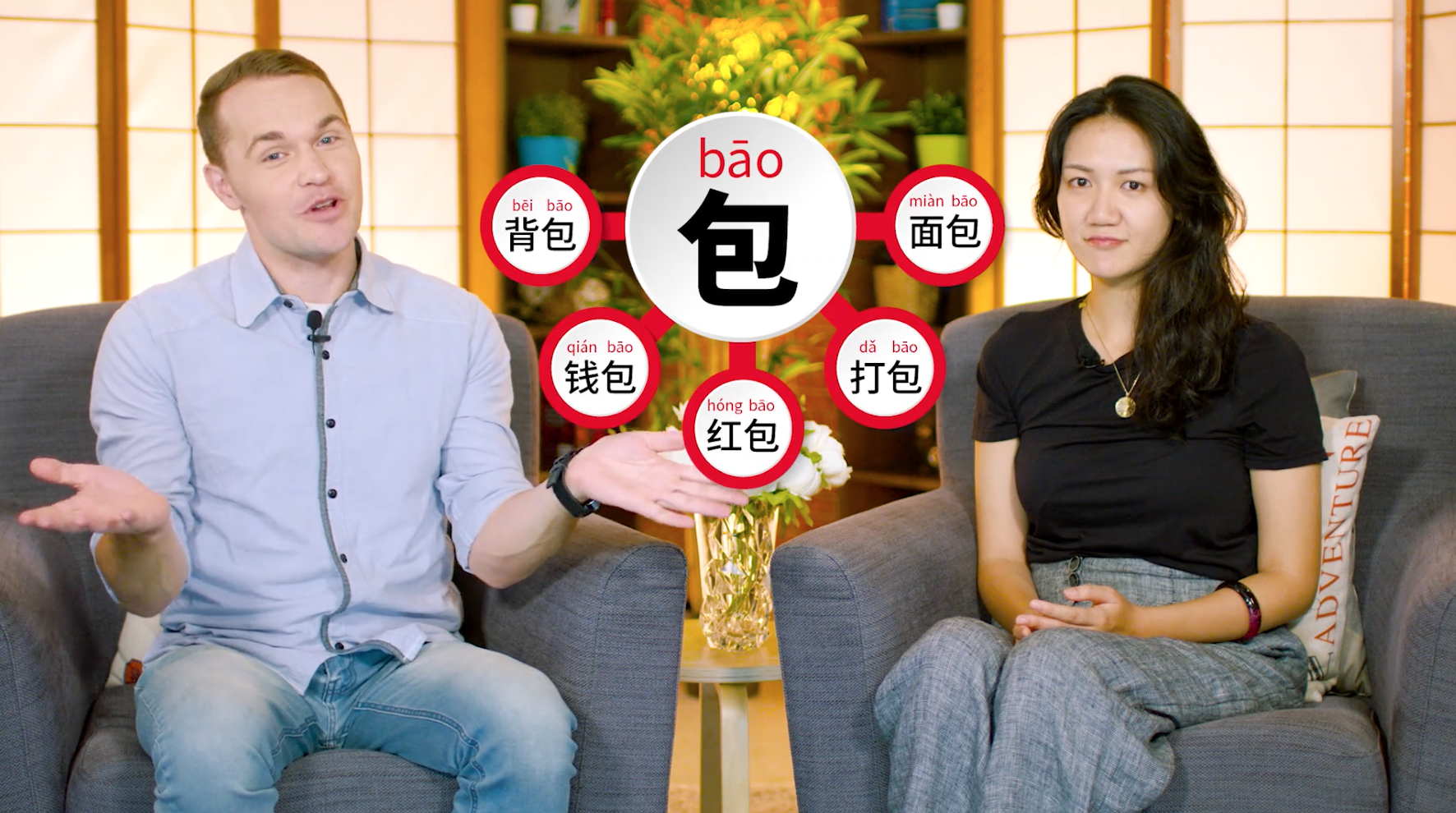Relevant Content
We'll always make sure you know exactly what the lesson is about. You
will easily understand whether it is relevant for you.
孔子拜访老子 3:无为而治
Great Hosts
Here at ChinesePod, all our lessons are presented in an entertaining
manner by our great hosts. You'll find language learners, teachers,
and even professors sharing their insights, ideas, and teaching
methods in our video and audio lessons.
Brief Lesson Summaries
A brief introduction of the lesson will always tell you what this
lesson is about and what language level is the intended target. If
you're interested in the subject, but might not be able to understand
it in full, fear not; we have transcripts of lesson dialogues
vocabulary so you can follow along.
IN THIS LESSON
ID: 1865 Advanced
在这集中,孔子要向老子请教治理国家的方法。老子有什么妙招呢?他的建议是否可行呢?想必那些忙着选举的总统候选人们也急着想找出答案来吧!那就让老子来告诉你吧!
Wed Feb 08 2012 | Connie, David
Awesome Materials
Our lessons contain natural communication in Chinese
in video and audio format. We have have lessons focused on video or a
podcast format and our lessons have transcripts of Lesson Dialogues,
Important Vocabulary, Expanded Materials for a deep dive into the
lesson topic and Exercises focused on testing your retention.
Detailed Vocabulary
Each lesson has it's unique vocabulary and will provide you with
definitions and recordings so you can practice the pronunciation. You
will also be able to grasp the core material of a lesson at a glance.
Here we're showing you the Simplified Chinese version.
| SIMPLIFIED | PINYIN | ENGLISH | |
|---|---|---|---|
| 推举 | tuījǔ | to select | |
| 贤人 | xiánrén | sage, wise man | |
| 金银财宝 | jīnyíncáibǎo | 'wealth and treasure' | |
| 欲望 | yùwàng | desire |
同样,如果君主推举贤人做官,那么人民就学会了竞争,君主爱惜金银财宝,那么人民就懂得了偷盗。所以要想治理好国家,就应该让人民头脑空,肚子饱,身体强壮,但没有欲望。这叫做“无为而治”,就是什么都不需要做的、顺其自然的治国方法。
tóngyàng , rúguǒ jūnzhǔ tuījǔ xiánrén zuòguān , nàme rénmín jiù xuéhuì le jìngzhēng , jūnzhǔ àixī jīnyíncáibǎo , nàme rénmín jiù dǒngde le tōudào 。 suǒyǐ yào xiǎng zhìlǐ hǎo guójiā , jiù yīnggāi ràng rénmín tóunǎo kōng , dùzi bǎo , shēntǐ qiángzhuàng , dàn méiyǒu yùwàng 。 zhè jiàozuò “ wúwéi \'érzhì ”, jiùshì shénme dōu bù xūyào zuò de 、 shùnqízìrán de zhìguó fāngfǎ 。
By the same token, if a monarch selects wise men to become officials, the people will become competitive; if he covets wealth and treasure, the people will learn to steal. Therefore, in order to properly administer a country, the peoples' minds should be empty, their bellies full, and their bodies strong, but they should have no desires. This is called "governing by doing nothing;" using it, you need not do anything. It's a method of governance that follows the natural course of nature.
嗯,有道理。
ng4 , yǒudàolǐ 。
Ah. That makes sense.
我再问你,身体最硬的和最软的部位分别是什么?
wǒ zài wèn nǐ , shēntǐ zuì yìng de hé zuì ruǎn de bùwèi fēnbié shì shénme ?
I'll ask you again: what are the hardest and softest parts of the human body?
最硬的是牙齿,最软的是舌头。
zuì yìng de shì yáchǐ , zuì ruǎn de shì shétóu 。
The hardest are the teeth and the softest is the tongue.
Natural Dialogues
Each lesson is centered around a natural dialogue with key vocabulary
directly prepared and translated for your use. You can also
listen to each sentence as an individual recording to
improve your listening and comprehension skills.
Try It For Free
ChinesePod is 100% Free to Try. Create an account
today and get started!
Sign Up
Please enter a valid email.
- or -
Sign up with

